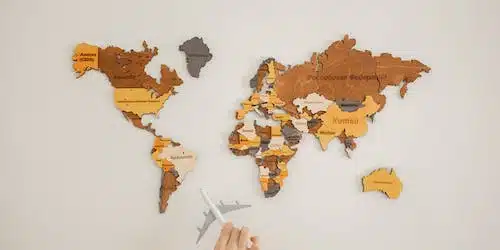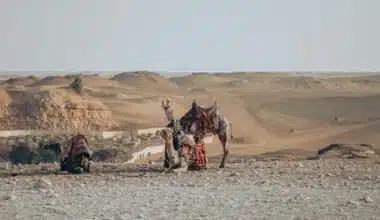Africa is a vast continent renowned for its breathtaking scenery, world-class beaches, unique wildlife encounters, and diverse cultural customs that differ greatly from area to region. Continue reading to learn more about vaccination to travel to Africa with your family and how much it costs.
Take a vacation to Africa to experience its captivating charm, which offers a wealth of varied landscapes, lively cultures, and wild adventures. It is a varied continent with magnificent scenery, rare fauna, and a rich cultural past. Travel advisories, entry and exit procedures, security and safety, cultural and environmental factors, and available modes of transportation should all be taken into account while making travel plans. Remain aware, exercise caution, and show consideration for regional traditions and customs.
To organize a successful family vacation to Africa, look into family-friendly locations, give security and safety a top priority, and take health and safety into account. Look at alternatives such as adventure parks, cultural sites, and animal sanctuaries. Select lodgings with kid-friendly amenities and take into account kid-friendly activities. Plan with the kids in mind and pack appropriately. Think of excursions that explore local cultures, wildlife safaris, and nature walks.
Travel to Africa: Tips For Planning
Africa is a vibrant, varied continent with amazing scenery, rare species, and a rich cultural legacy. There are a few key things to think about if you intend to travel to Africa.
When planning a trip to Africa, keep these things in mind.
#1. Travel Advisories
It’s crucial to review travel warnings and advisories for the particular countries you intend to visit before departing for Africa. These advisories offer details on health risks, safety and security issues, and other crucial travel-related information.
#2. Entry and Exit Requirements
Every African nation has its own restrictions regarding admission and departure, including those about health, passport validity, and visa requirements. You must read up on and follow these guidelines before your travels. To enter certain nations, one must, for instance, have proof of inoculation against yellow fever.
#3. Safety and Health
When visiting Africa, make sure you are aware of any health advisories, seek advice from a medical professional, bring necessary supplies such as prescription drugs, and observe local laws and customs to ensure your health and safety. To guarantee a courteous and enjoyable encounter, familiarize yourself with the customs and attire requirements in the area.
#4. Security and Safety
Put safety first when visiting Africa by being knowledgeable, exercising caution when driving, and adopting preventative measures. Keep abreast of security events, lock hotel doors, keep valuables hidden, and store them safely. Drive safely and avoid nighttime driving, especially when you’re not in a big city. Be mindful of the local driving circumstances.
#5. Cultural and Environmental Considerations
It is essential to respect and value African native customs and traditions. When in religious or conservative locations, wear proper clothing and pick up some basic phrases in the local tongue. Respect the environment by visiting natural areas such as national parks and wildlife reserves according to the rules set forth by the park authorities.
#6. Transportation
Africa’s transportation systems differ from nation to nation and area. Common means of transportation include public transportation, automobiles, boats, and ferries. Road travel is popular for experiencing different places, while air travel is practical for longer distances. There are several possibilities for public transit, including buses, minibusses, and trains, but safety must always be taken into account. Traveling by boat or ferry is picturesque, but you need to follow safety precautions and regulations.
#7. Accommodation
Accommodations in Africa range from luxurious resorts to affordable hotels, lodges, safari camps, guesthouses, and homestays. Making reservations in advance is advised, particularly during the busiest travel times. While guesthouses and homestays offer rich cultural encounters, lodges and safari camps offer distinctive experiences.
#8. Nature and Wildlife
Travelers must see the wildlife and unspoiled scenery of Africa. Discover national parks, participate in guided tours for a unique experience, and support conservation efforts to ensure courteous contact.
#9. Cultural Experiences
Africa provides a wealth of cultural experiences, such as traditional ceremonies, local markets, cultural villages, and museums, all of which give distinctive perspectives on the history, customs, and ways of life of the continent.
#10. Travel Insurance
When traveling to any foreign country, including Africa, it is strongly advised to have travel insurance. It can offer coverage for unanticipated events like lost luggage, medical emergencies, and trip cancellations. Make sure you thoroughly read the policy to comprehend the exclusions and coverage.
Vaccination to Travel to Africa
It’s crucial to think about getting the required vaccines to safeguard your health before visiting Africa.
Yellow fever and standard vaccinations such as MMR, polio, influenza, hepatitis A and B, influenza, meningitis, and rabies were required for travel to Africa. Prophylactic anti-rabies vaccinations are advised for close contact with animals; routine immunizations are current; and yellow fever vaccinations are advised for entry. Accommodations, activities, food and drink, and transportation are just a few of the factors that affect travel expenses in Africa. While the cost of transportation varies based on the distance, mode of transportation, and destination, the cost of accommodations ranges from affordable lodging to luxurious resorts.
Among these immunizations are:
#1. Yellow Fever Vaccination
Yellow fever is a viral illness that mosquitoes spread in some parts of Africa. Proof of immunization against yellow fever is required for entrance into many African countries. It is advised to get the yellow fever vaccination at least ten days before visiting a region where the disease is present. Travel clinics regularly provide this immunization.
#2. Routine Vaccinations
Make sure you have received the most recent shots for standard immunizations, including influenza, polio, measles, mumps, and rubella (MMR).
#3. Hepatitis A and B
Travelers visiting places with inadequate sanitation or a higher chance of coming into contact with tainted food or water are advised to get these vaccinations.
#4. Influenza Vaccination
The flu, sometimes referred to as influenza, is a serious viral respiratory infection that can lead to serious illness. Travelers are advised to get the influenza vaccination, especially during flu season, to lower their chance of getting sick and passing the virus on.
#5. Meningitis
Your travel itinerary may determine whether you require a meningitis vaccination, particularly if you are visiting nations within Africa’s meningitis belt.
#6. Rabies
Speak with a travel doctor about getting a prophylactic anti-rabies vaccination if you want to interact closely with animals or partake in activities that could expose you to animal bites.
#7. Cholera Vaccination
A bacterial ailment called cholera can be caught from tainted food or drink. It is advised to speak with a healthcare provider about the necessity of receiving a cholera vaccination, even if the danger of cholera may differ based on the particular area and circumstances.
#8. Meningococcal Vaccination
The bacterial illness meningococcal disease can result in meningitis or inflammation of the lining surrounding the brain and spinal cord. Seasonal and geographic factors can affect the risk of meningococcal illness.
#9. Tetanus and Diphtheria Vaccinations
Bacterial illnesses such as tetanus and diphtheria can be acquired through cuts, contaminated objects, or respiratory droplets. Before visiting Africa, make sure your vaccinations against diphtheria and tetanus are current.
#10. Measles, Mumps, and Rubella (MMR) Vaccination
Rubella, mumps, and measles are viral illnesses that have a high potential for transmission. Since outbreaks of these diseases can happen in some parts of Africa, it’s critical to make sure your MMR immunizations are current.
How Much to Travel to Africa
The price of an African safari varies from $125 to $1,500 per person per night. An economical safari typically costs $150 per night, a mid-range $350, and an opulent $750. The most extravagant top safaris can easily cost $1,500 or more per night.
Traveling to Africa can be expensive depending on several variables, including the countries you want to visit, how long you stay, how comfortable you want to be, and how you want to travel.
These elements influence the cost of travel to Africa.
#1. Accommodation
Africa offers a variety of lodging alternatives, from luxurious resorts to more affordable options. The location, degree of comfort, and kind of lodging you select will all affect the cost. Generally speaking, mid-range hotels and guesthouses have nightly rates between $50 and $150. The cost of a night at a luxury lodge or resort can vary from $200 to several thousand dollars.
#2. Transportation Cost
Depending on the distance, mode of transportation, and countries you want to visit, the cost of transit within Africa can change. Domestic travel can cost anywhere from $100 to $500 or more, according to the airline and itinerary. Bus or train travel overland is typically less expensive but can take more time. Adding a driver or guide for a safari or tour, or renting a car, will increase the cost of transportation.
#3. Food and Beverages
In Africa, the price of food and beverages can differ based on the nation and kind of establishment. In general, inexpensive options can be found in tiny local eateries or on-the-street food, although sophisticated dining establishments may be more costly. Depending on your tastes, you should budget between $10 and $30 on average for each meal.
#4. Activities and Sightseeing
The price of touring and activities in Africa can differ significantly based on the particular experiences you select. The cost of safari trips, seeing wildlife, entrance to national parks, cultural tours, and adventure activities like hiking or water sports will vary. It is a good idea to plan and budget for the particular things you are passionate about.
#5. Visa Fees and Entry Requirements
The cost of a visa and the prerequisites for admission can change based on your country of residence and the African nations you intend to visit. While some nations need visa applications in advance, others allow access without a visa or provide visas upon arrival. It is crucial to ascertain the necessary visa requirements and related costs for every nation you intend to visit.
#6. Health and Travel Insurance
When visiting Africa, it is imperative to have travel insurance to cover any unanticipated medical costs, trip delays, or emergencies. The price of travel insurance will vary based on your age, the length of your trip, the coverage limitations, and the activities you intend to partake in. Getting comprehensive travel insurance that covers medical expenses is advised.
#7. Miscellaneous Expenses
Consider other costs, such as airport transfers, driver and guide tips, souvenirs, and any other services or activities you decide to partake in while traveling.
Travel to Africa with Family
Taking your family on a trip to Africa can be a thrilling and rewarding experience. There are several things to think about when organizing a family vacation to Africa.
These are some tips to help you get ready for an enjoyable family vacation.
#1. Research Family-Friendly Destinations
Look into and select family-friendly travel places in Africa. Seek out locations like nature reserves, cultural attractions, and adventure parks that provide a variety of activities appropriate for all age groups. Popular destinations in Africa for family vacations include South Africa, Namibia, Kenya, Tanzania, and Botswana.
#2. Consider Safety and Security
Make sure the places you select have a solid safety record and take the required safety measures to protect your family. Keep yourself updated about travel advisories and heed the advice of regional authorities. Having a communication strategy in place and giving loved ones access to critical documents and contact details in an emergency are also smart moves.
#3. Safety and Health Considerations
It is crucial to put your family’s health and safety first when visiting Africa. Make sure you and your family have received all recommended immunizations, and find out if any more are needed by speaking with a medical expert or travel medicine specialist. Additionally, it’s a good idea to take preventative measures against diseases that mosquitoes spread, such as using insect repellent and, if necessary, sleeping under mosquito nets.
#4. Travel Logistics and Planning
Think about things like lodging, travel, and logistics while organizing a family vacation to Africa. Examine your family’s comfort and convenience when choosing the best flight options. Select lodgings with appropriate amenities and services that are family-friendly.
#5. Accommodation Options
Seek out lodgings that are kid-friendly and have services and facilities that are appropriate for them. Think about choices like family-focused lodges, self-catering villas or flats, and resorts with kids’ clubs. These motels frequently offer services and activities catered to the requirements of young guests.
#6. Plan Age-Appropriate Activities
While organizing activities for your kids, take their ages and interests into account. Seek out interesting and instructive activities, such as nature hikes, wildlife safaris, interactive museums, and cultural excursions. Numerous locations have kid-friendly activities and knowledgeable guides who know how to interact with kids.
#7. Involve Your Children in the Planning Process
To make your kids excited about the trip, involve them in the planning process. To pique their interest and teach them about the place, show them images, films, and literature about Africa. Talk about the experiences and activities they would like to have, and take their opinions into account when making choices.
#8. Pack Accordingly
Bring necessities like climate-appropriate clothing, cozy shoes, sunscreen, insect repellent, and any prescription drugs that may be required. Think about the particular requirements of your kids, such as snacks, entertainment for long car rides, and newborn necessities. It’s also a good idea to bring along a first-aid kit and any other special supplies your family might need.
#9. Cultural Sensitivity and Education
Your children’s knowledge and appreciation of Africa will grow if you teach them about the local customs, culture, and wildlife protection. Teach your kids about responsible tourism and promote polite relationships with the locals and the wildlife.
#10. Capture and Document Memories
Take pictures, make movies, and keep a travel journal to record your family’s travel adventures. Urge your kids to write down their experiences so they can make enduring memories. This can let them reflect on their voyage and share their experiences with others, in addition to being a fantastic memento.
What Do I Need to Know Before Going to Africa?
Before visiting Africa, there are a few things you should know: you should plan your homework, making sure to consider things like visa requirements, health and safety precautions, travel documentation, cultural sensitivity, wildlife conservation, road safety, transportation, and money and currency. Being prepared and treating others with respect will ensure a seamless and enjoyable trip to explore Africa’s rich culture, scenery, and animals.
What Documents Do I Need to Travel to Africa?
A valid passport, visa, health records (such as immunization records), travel insurance, airline tickets, evidence of lodging, and adequate finances are typically required to enter Africa. Your particular situation may necessitate the need for further documentation. Don’t forget to preserve copies of critical documents and research the admission criteria of any nation you intend to visit.
Which Country Is the Best Place to Visit in Africa?
The ideal destination in Africa is a matter of opinion and personal preference. Popular travel destinations include South Africa with its diverse attractions and energetic cities; Tanzania with its wildlife and natural beauty; Zambia with its untamed scenery and Victoria Falls; Namibia with its unique landscapes and desert adventures; Kenya with its wildlife and safaris; Sierra Leone with its friendly culture and gorgeous beaches; Rwanda with its breathtaking landscapes and gorilla trekking; and Namibia with its unique landscapes and desert adventures. Nevertheless, there are a ton of amazing places in Africa to discover, so while deciding where to go, take your hobbies and travel objectives into account.
How to Safely Go to Africa?
Traveling to Africa safely requires careful planning and preparation, monitoring for travel advisories, implementing any necessary health precautions, securing personal belongings, maintaining awareness of your surroundings, adhering to local customs, using dependable transportation, maintaining contact with a reliable person, purchasing travel insurance, and relying on reliable sources of information. You can increase your safety and enjoy a more pleasurable trip to Africa by heeding this advice.
How Much Money Do You Need for a Trip to Africa?
Travel to Africa can be expensive or inexpensive, depending on several variables, including length of stay, countries visited, kind of lodging, activities, and personal preferences. Customized vacations can cost anywhere from $2,000 to $50,000 per person, whereas safaris can cost anything from $125 to $1,500 per person each night. The expense of road trips might also vary. It’s critical to account for costs associated with obtaining a visa, as well as travel insurance, lodging, food, and other expenses. It is advised that you create a budget depending on your tastes and particular itinerary.
How Do I Plan a Trip to Africa?
When organizing a trip to Africa, you should start saving, set a budget, decide on your destinations, book flights, make hotel arrangements, schedule activities and tours, verify visa requirements, pack sensibly, get travel insurance, get ready for travel documents, familiarize yourself with local customs, keep track of safety issues, double-check reservations, and consult travel agencies or tour operators for advice. This guarantees a seamless and joyful encounter.
Summary
Whether you are coming to Africa for business, a mission, a safari, or a vacation, traveling there requires extensive planning. Whatever your plans, you should be aware that many East and West African nations have a range of potential communicable diseases for which you should be prepared.
These factors make it essential to plan and be aware of the hazards before your travel.
- BEST PLACES TO VISIT IN AFRICA: Exploring the Continent’s Less Traveled Treasures
- CHRISTMAS IN AFRICA: A Symphony of Cultures, Traditions, and Joy
- BEST DESTINATIONS FOR VACATION IN AFRICA
- TRIBES IN AFRICA: Unveiling the Rich Traditions and Heritage
- BEST TIME TO VISIT SOUTH AFRICA






